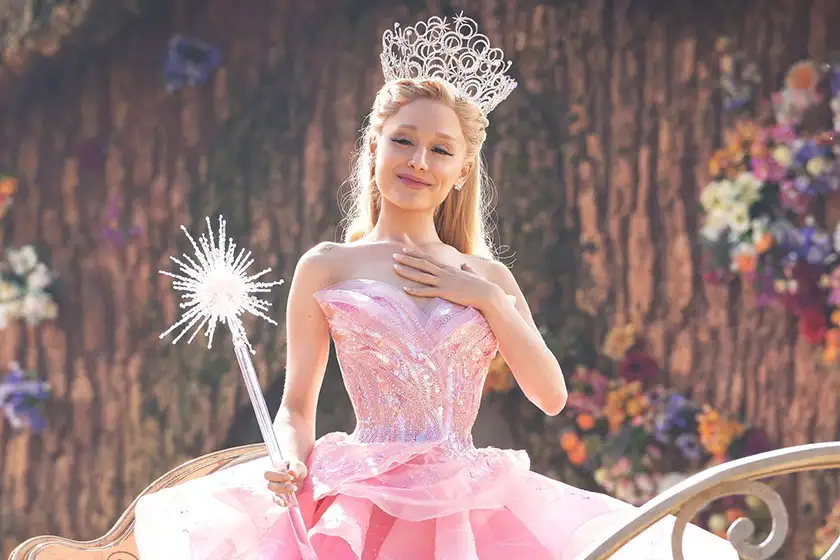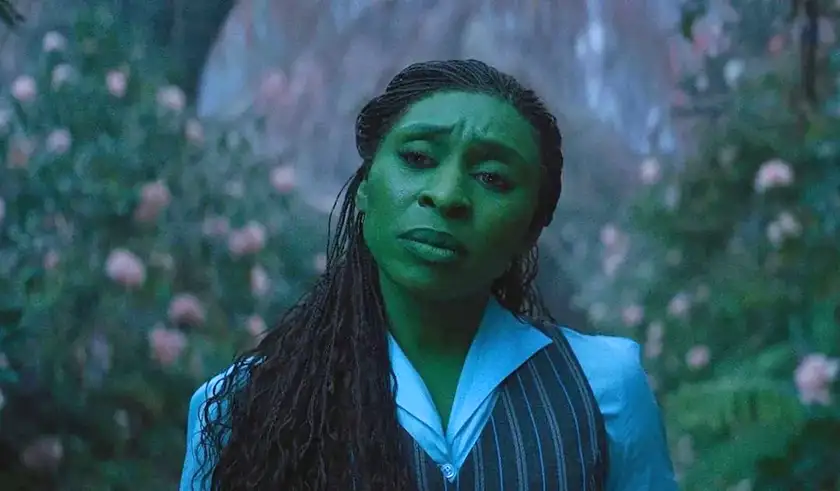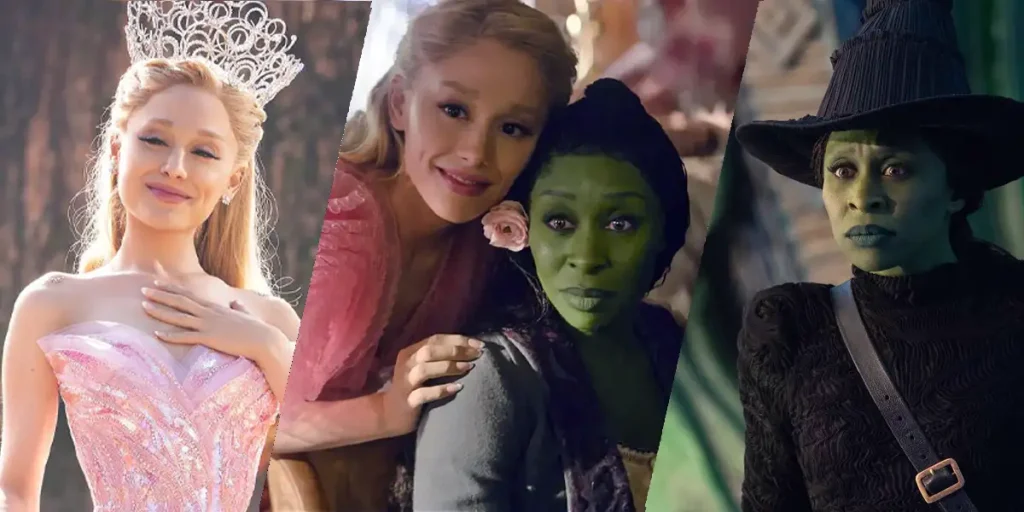A list of 5 moments in Wicked where Cynthia Erivo and Ariana Grande’s Oscar-nominated performances defied expectations.
Wicked, the beloved musical based on Gregory Maguire’s 1995 novel, is a retelling of the story of the Wicked Witch of the West and a labyrinthine tale of friendship, identity and power. Split into two halves, Wicked 2024 (titled on screen as Wicked: Part 1) was directed by Jon M. Chu. The film adaptation’s greatest draw was pairing a Tony winner (Cynthia Erivo) and a pop superstar (Ariana Grande) to deliver career-defining performances. Erivo portrays Elphaba, the misunderstood witch whose skin is an unconventional shade of green, and Grande tackles the popular but snobbish Glinda.
Both actresses received Oscar nominations for their performances: Erivo in Best Lead Actress and Grande in Best Supporting Actress. Ranked chronologically, these 5 moments in Wicked demonstrate where Erivo and Grande’s performances shone, highlighting the depth each brought to their respective roles.
1. No One Mourns the Wicked

Floating in a translucent pink bubble, Glinda arrives in Munchkinland to deliver news of the Wicked Witch’s death, with Grande spotlighting her high-altitude vocals on the film’s opening number “No One Mourns the Wicked”. This moment carries added emotional weight, as it takes place long after Elphaba and Glinda’s magnetic and often turbulent friendship begins. Throughout this number, Grande beautifully highlights the contrast between public celebration and personal grief, allowing sorrowful breaths to punctuate lyrics like “good news” and “she died alone”. There’s a heaviness behind Glinda’s forced smile, trapped between the demands of her role as Glinda the Good and the reality of her emotions. Grande’s ability to balance humour with the underlying emotional turmoil so early on in the film is a noteworthy achievement.
2. The Ozdust Ballroom
The Ozdust Ballroom scene deepens the bond between Elphaba and Glinda after Glinda mockingly gifts Elphaba a tall, black, conical hat. Elphaba, with the hat sitting atop her braids, initially dances alone, facing ridicule from the crowd before Glinda approaches and begins mirroring her movements. Marked by subtle gestures and facial expressions, this scene effectively communicates a profound shift in their relationship—from rivalry to empathy. Erivo shares Elphaba’s roaring vulnerability as she takes power back in wearing the hat. Grande perfectly complements Erivo as this too becomes a moment of personal growth for Glinda, welcoming what she’s most afraid of: being laughed at. Glinda wipes away a single tear from Elphaba’s cheek, an improvised gesture by Grande that adds another layer of sentiment to the scene. Their instincts as acting partners are incredible at this moment.
3. Popular
As their friendship begins to blossom, Glinda decides to teach Elphaba how to become popular. Hot pink lighting fills their dormitory, adding to the flamboyance of “Popular” as Grande jovially chants “don’t be offended by my frank analysis, think of it as personality dialysis”. This number allows Grande to show off her natural comedy chops, delivering every line with a perfect mix of charm and sass while leaning into the theatricality of the character—the hair flips, the leg points! M. Chu allows Grande to play with the performance, like when a ball spins off her finger in an impromptu display of physical comedy. “Popular” solidifies Grande as a versatile performer.
4. I’m Not That Girl

This poignant ballad explores Elphaba’s feelings of unrequited love and self-doubt. Erivo’s performance, marked by her steady intensity and soulful vocals, highlights that despite Elphaba’s outward strength, she’s not able to experience the same love and admiration that others, particularly Glinda, seem to seamlessly receive. The subtlety in Erivo’s body language and delicate phrasing on lyrics like “but that doesn’t soften the ache we feel when reality sets back in” draws the audience closer, inviting them to step into Elphaba’s world of isolation and acknowledge her surrender to that feeling. Erivo masterfully underscores Elphaba’s fragility beneath the surface.
5. Defying Gravity
“Defying Gravity” serves as the turning point in Wicked where Elphaba and Glinda realise they want different things and must let go of one another in pursuit of them. Grande delivers the line “you can have all you ever wanted” with an empty expression, choosing to submit to her ambition knowing it puts her at complete odds with Elphaba. On the other hand, Elphaba chooses to reject the constraints of the world around her. Erivo delivers an electrifying battle cry that left me wiping away tears, using the sleeve of my denim jacket as a makeshift tissue. Erivo and Grande bring contrasting depth to their roles in this soaring number as Elphaba and Glinda become reconciled to the independence each must embrace.
Erivo’s tender defiance and Grande’s effortless balance of humour and heart prove an indelible stamp on Wicked, justifiably earning them both Oscar nominations.

